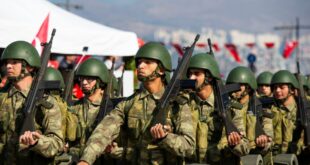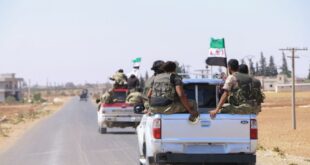Muhammad Usman Ghani
Composed of fifty-seven countries and spread over four continents, the Organization of Islamic Conference (OIC) is the second-largest intergovernmental body following the United Nations (UN). And it is no secret that the council was established in the wake of an attack on the Al-Aqsa Mosque in Jerusalem. Safeguarding and defending the national sovereignty, independence, and territorial integrity of its member states is the significant provision of the OIC’s charter. OIC charter also undertakes to strengthen the bond of unity and solidarity among member states. Uplifting Islamic values, practicing cooperation in every sphere among its members, contributing to international peace, protecting the Islamic sites, and assisting suppressed Muslim community are other significant features of its charter.
Recently, the world witnessed the 11-days long conflict between Hamas and Israel. In a recent episode of the clash between two parties, Israel carried out airstrikes on Gaza, claiming many innocent Palestinian lives. The overall death toll in the territory rose to 200, including 59 children and 35 women, with 1305 injured, says Hamas-run health ministry. This event was met with resentment from people across the world, and they condemned Israeli violence. After 11 days of violence, the Israeli government and Hamas agreed to a ceasefire. The event of Israeli violence on Palestinians has called the role of OIC into question. The council, formed in the aftermath of the onslaught on Al-Aqsa mosque, seemed to adopt a lip service approach to the conflict. However, the call for stringent measures against Israeli aggression by the bloc was not part of its action.
Likewise, the Kashmir issue, which has witnessed atrocities of Indians on innocent Kashmiris, looks up to the OIC for its resolution. Last year, during the 47th session of the Council of Foreign Ministers (CFM) in Niamey, Niger, the CFM reaffirmed its strong support for the Kashmir cause. The OIC categorically rejected illegal and unilateral actions taken by India on August 5 to change the internationally recognized disputed status of the Indian Illegally Occupied Jammu and Kashmir and demanded India rescind its illegal steps. However, the global community seems to pay deaf ears to the OIC’s resolution. The Kashmir issue and the Palestine issue are the core issues of the world that are witnessing the worst humanitarian crisis. And the charter of the bloc that aims to guard the Muslim ummah’s interest rings hollow. About a year ago, the event that made rounds on electronic and social media was the occurring of the KL summit, which reflected another inaction of the OIC. The move of influential Muslim countries (Iran, Turkey, and Indonesia), to sail on the idea to establish another forum to counter the OIC, manifested the rift in the bloc.
Many OIC countries are underdeveloped and poorly governed and are home to instability, violence, and terrorism. The consequences of the violence and terrorism in the OIC countries have been devastating. According to Forbes, 7 out of 10 countries, which suffer most from terrorism are OIC members. The Syrian conflict is another matter of concern in the Mideast, looking up to OIC for a way out. An immense number of people have lost their lives in the Civil war in Syria.
Several factors contribute to the inefficiency of the bloc. The first and foremost reason is the Saudi-Iran stalemate. Influential regional powers (Iran and the Kingdom of Saudi Arabia) in the Mideast share strained links following the Islamic Revolution in Iran. Both sides dissent each other on many fronts. Saudi Arabia accuses Tehran of interfering in its internal affairs, using terrorism as a tool to intimidate neighbors, fuelling sectarianism, and equipping proxies to de-stabilize and overthrow the legitimate government. Locked in a proxy war in the Mideast, the KSA and Iran vie for regional dominance. Moreover, Iran’s nuclear program is met with strong resentment in the KSA since it shifts the Balance of Power towards Iran. Such developments play a vibrant role in their stalemate, and the bloc’s effectiveness is hostage to the Saudi-Iran standoff.
Political and social exclusion in many OIC states is the norm of the day, contributing to upheaval and conflict. In OIC countries, the level of political participation and political and social integration is weak. This fact has rendered OIC countries vulnerable to unrest. Arab Spring in 2011 stands as the best example. Furthermore, conflicts, since the mid-1990s, have occurred in weak states that have encountered unrest frequently.
Saudi Arabia has tightened its grip on the OIC. The reason being, the OIC secretariat and its subsidiary bodies are in the KSA. More importantly, the KSA’s prolific funding to the bloc enhances its influence on the bloc. One example includes, in the past, the KSA barred an Iranian delegation from the OIC meeting in Jeddah. Saudi authorities have not issued visas for the Iranian participants, ministry spokesman, says Abbas Mousavi. “The government of Saudi Arabia has prevented the participation of the Iranian delegation in the meeting to examine the deal of the century plan at the headquarters of the Organization of Islamic Cooperation,” Mousavi said, the Fars news agency reported. Given the Iranian growing influence and its access to nuclear capabilities, the KSA resorted to using financial leverage to reap support from Arab countries against Iran. For instance, in past, Somalia and several other Arab states such as Sudan and Bahrain received a commitment of financial aid from Saudi Arabia on the same day they cut ties with Iran. Furthermore, the summits of OIC, GCC, and Arab League are perceived as an effort by Saudi Arabia to amass support against Tehran.
Division in the Muslim world and their clash of interests is yet another rationale behind its inefficacy. These days, many Muslim countries are bent on pursuing their interests rather than paying commitment to their principles, that is, working collectively for the upkeep of the Muslim community. Last year, the governments of Israel and the United Arab Emirates (UAE) announced that they had agreed to the full normalization of relations. Following this, the Kingdom of Bahrain became another Muslim country to normalize its links with Israel. Such moves by the Islamic countries weaken the OIC agenda against Israel.
OIC’s efficacy would be a distant dream unless the Saudi-Iran deadlock finds its way. For this purpose, Pakistan can play a vital role in mediating between these two powers. Pakistan has always been an active player in the OIC and played its role in raising its voice against Islamophobia, Palestine Issue, and the Kashmir issue. Shunning their interests and finding the common goals of the Muslim ummah, should be the utmost priority for the members of the bloc. Every OIC member ought to play its part in the upkeep of the bloc. Furthermore, a split in the bloc should come to an end since it leads to the polarization of member states towards regional powers. Many OIC countries are rich in hydrocarbons (a priceless wealth, which is the driver for the growth of a country); if all OIC members join hands and enhance their partnership in this sphere they can fight against energy security. And OIC is the crux for magnifying cooperation among its member states to meet their energy needs.
In this era of globalization, multilateralism plays a pivotal part. No one can deny the significance of intergovernmental organizations since they serve countries in numerous ways. In the same vein, OIC can serve Muslim ummah in multiple ways; if it follows a course of adequate functioning.
 Geostrategic Media Political Commentary, Analysis, Security, Defense
Geostrategic Media Political Commentary, Analysis, Security, Defense





